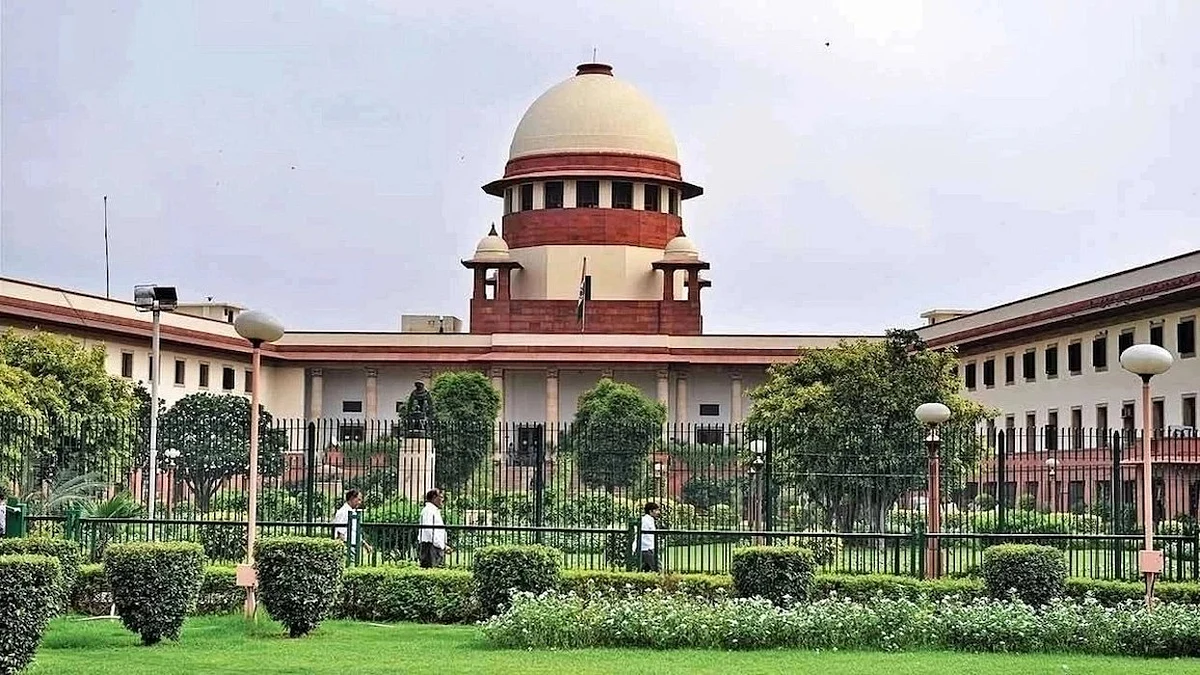SC strikes down Electoral Bonds scheme, calls it unconstitutional
The court has directed the SBI, which is the bank issuing electoral bonds, to halt it and furnish details of all the political parties who received electoral bonds and submit them to ECI by 6 March

The Supreme Court on Thursday, 15 February struck down the controversial electoral bonds scheme that allows anonymous donations to political parties, stating that it was unconstitutional and violates Article 19(1)(a) of the Constitution, which guarantees all citizens "the right to freedom of speech and expression".
A five-judge Constitution bench of Chief Justice of India (CJI) DY Chandrachud and Justices Sanjiv Khanna, BR Gavai, JB Pardiwala and Manoj Misra unanimously quashed the scheme and the amendments made to the Income Tax Act and the Representation of People Act which had made the donations anonymous.
“Electoral Bonds Scheme, proviso to Section 29(1)(c) as amended by Section 139 of Income Tax Act and Section 13(b) as amended by Finance Act 2017 is violative of Article 19(1)(a). Amendments to Income Tax Act and Representation of People Act on absolute non-disclosure of donations are struck down” said the CJI.
The bench heard a clutch of petitions over three days and reserved its verdict in November. While reserving its verdict, the SC had asked the Election Commission of India (ECI) to submit data regarding the electoral bonds which had been sold until 30 September 2023.
Though the bench arrived at a unanimous decision, CJI Chandrachud read out the lead judgement and Justice Khanna penned a separate but concurring judgement with a different reasoning.
“I agree with the judgment of CJI. I have also applied the principles of proportionality but with slight variation. But the conclusions are the same,” said Khanna about his judgement.
The court has directed the State Bank of India, which is the bank issuing electoral bonds, to halt it and furnish details of all the political parties who received electoral bonds and submit them to Election Commission of India (ECI) by March 6. The ECI then has to publish these details on its website by March 13, 2024. Thereafter, the political parties have to refund the Electoral bonds amount to the purchasers account.
The court stated that the scheme helps the party in power to gain an undue advantage and the scheme cannot be justified in the name of “black money” either. "Economic inequality leads to differing level of political engagements. Access to info leads to influencing the policy making and also leading to quid pro quo arrangements may help a party by the party in power," the judgment said.
The CJI stressed that information about the funding of the political parties was essential for the successful exercise of voting and open governance. “Political contributions allow a seat at the table for contributors and it increases access to legislators. This translates into influence during policymaking. They infringe upon the right to information of the voter by anonymising contributions through electoral bonds are violative of Article 19(1)(a).”
The Chief Justice said the fundamental right to privacy also includes the citizens’ right to political privacy and affiliation and this led to conflicting rights to information and to informational privacy. The Court rejected the Union government’s contention that Clause 7(4)(c) of the scheme balances both the right to information and to informational privacy.
Donations above Rs 20,000 to National Parties from all over India, FY 2022-23 (as per ADR India)
As per the press release by ADR India, the total donations (above Rs 20,000) declared by the National parties for FY 2022-23 was Rs 850.438 cr from 12,167 donations.
A total of Rs 719.858 cr from 7,945 donations was declared by BJP followed by Rs 79.924 cr from 894 donations declared by INC. The donations declared by BJP are more than five times the aggregate declared by INC, AAP, NPEP and CPI(M) for the same period.
BSP declared that the party did not receive any donations above Rs 20,000 during FY 2022-23, as it has been declaring for the past 17 years.

The history
Electoral bonds were first mentioned by then Finance Minister Arun Jaitley in his 2017 union budget speech. It was introduced through the Finance Act, 2017, which in turn amended three other statutes - the RBI Act, the Income Tax Act and the Representation of People Act - to enable the introduction of such bonds.
While introducing the scheme, the government stated it was to cleanse the system of political funding in the country. The Electoral Bond would be a bearer instrument in the nature of a Promissory Note and an interest free banking instrument. A citizen of India or a body incorporated in India would be eligible to purchase the bond.
“The bonds under the Scheme shall be available for purchase for a period of 10 days each in the months of January, April, July and October, as may be specified by the Central Government. An additional period of 30 days shall be specified by the Central Government in the year of the General election to the House of People,” stated the government in 2018. The bond can be encashed by an eligible political party only through a designated bank account with the authorised bank.
Follow us on: Facebook, Twitter, Google News, Instagram
Join our official telegram channel (@nationalherald) and stay updated with the latest headlines
Published: 15 Feb 2024, 12:35 PM